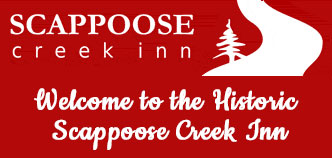The Latest Technie Craze
Geocaching is the latest techie craze. You will be thrilled with the hunt and intrigued by the Travel bugs. Believe it or not there are over 500 Geocaching sites in the Columbia County. Stay with us at Scappoose Creek Inn to explore the county’s bounty of caches.
Geocaching is the modern-day version of a hide-and-seek combined with a scavenger hunt. It”s a high-tech treasure hunting outdoor adventure activity using GPS (Global Positioning Satellite) technology to locate hidden “caches” which are listed on the Internet at Geocaching.com by their latitude and longitude coordinates.
Traditional caches consist of some sort of waterproof container holding a log book and pencil plus various small, inexpensive “treasures”. After signing the log book, these “treasures” may may be traded for or added to by the finder.
This outdoor sport traces its roots to May 3, 2000, when Dave Ulmer of Beavercreek, Oregon, seeking to celebrate the removal of the government-built-in inaccuracy of the GPS system, hid a single black plastic bucket (containing software, videos, books, food, money and a slingshot) and posted the GPS coordinates on the Internet. The cache was found and logged three days later by Mike Teague of Vancouver, Washington, and voilá, the sport was born! From that humble beginning, the activity has grown incredibly fast, becoming an extremely popular outdoor sport enjoyed by hundreds of thousands of people worldwide.
Today there are several Internet sites offering geocaching listings plus a few offering variations on the sport, such as Waymarking and EarthCaching. The largest and oldest of these sites, and a great place to learn more about this adventure activity, is Geocaching.com. Described as the official global GPS cache hunt site, Geocaching.com was created in September 2000, and today lists over 700,000 geocaches around the world. In addition to GPS coordinates, listings include information about the site, such as a brief description, a gallery of photos, comments posted by prior visitors to the cache, and a difficulty and terrain rating scale from 1 (easy) to 5 (most difficult). Difficulty relates to the mental challenge of finding the cache; terrain refers to the physical challenge of getting to it.
For many, geocaching can become quite addictive, combining the thrill of the hunt with healthy outdoor exercise, hiking, traveling, and the never-ending tangible treasure of finding unique and beautiful spots on the planet which otherwise you might never visit. One of the best features of geocaching is that it is an activity that is enjoyed by people of all ages and physical abilities. Whether enjoyed as a solitary pursuit or one taken on as a group, geocaching always makes for a great day”s outing.


